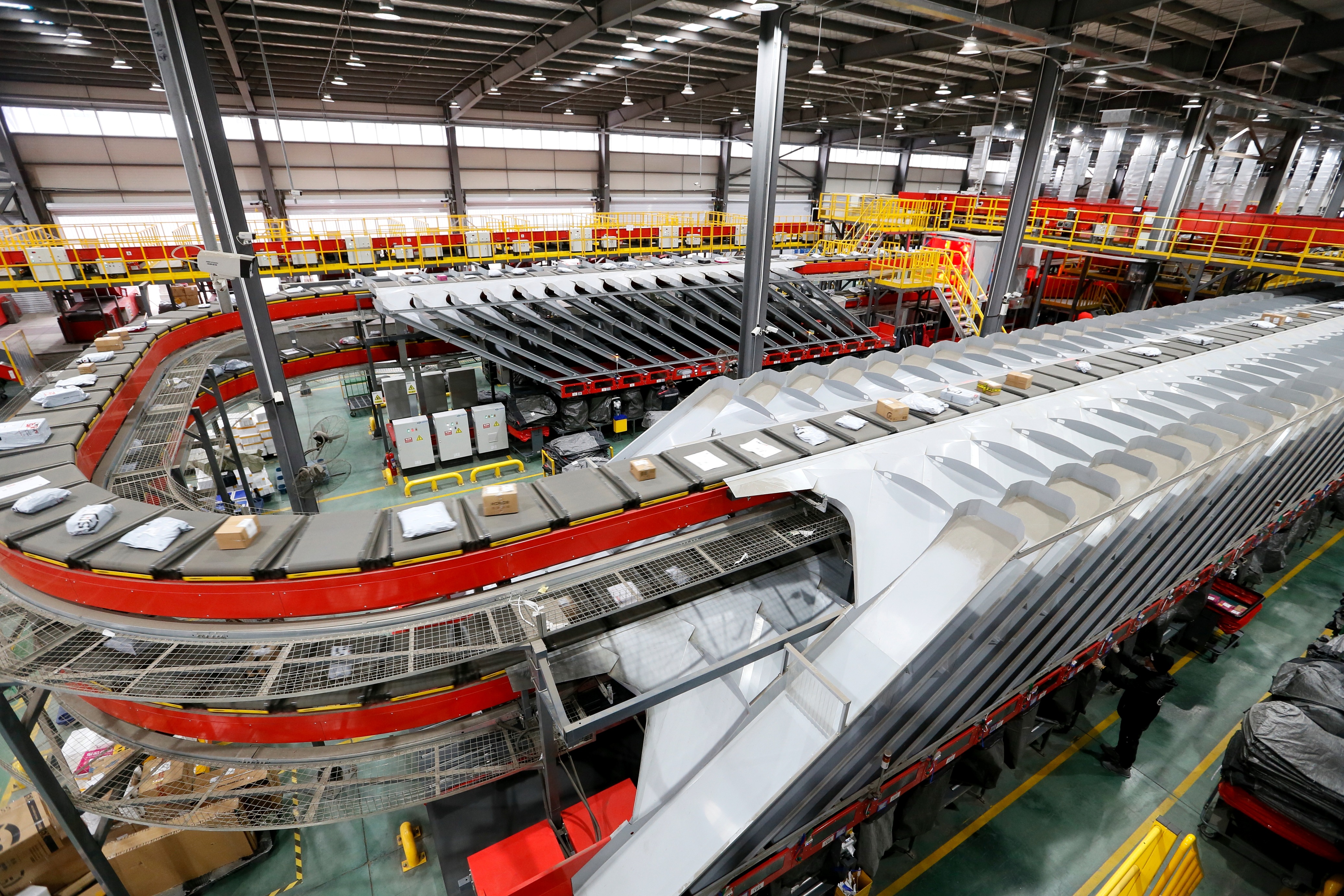Developing Smart Logistics System
An automatic system sorts parcels at the Shunfeng Huajun Distribution Center in Qingdao, east China's Shandong province. (PHOTO: VCG)
By Staff Reporters
China will promote digital transformation of its logistics industry and develop a modern logistics system during the 14th Five-Year Plan period (2021-2025), according to a plan recently approved by the State Council.
By 2025, China will basically establish a safe, efficient, smart and green modern logistics system featuring good balance between supply and demand, and connectivity between domestic and international logistics, said the plan.
Meanwhile, innovation capacity on logistics and enterprises' competitiveness will be further strengthened, and a number of modern logistics sci-tech innovation centers and national engineering research centers will be established.
The plan includes new technologies, such as the mobile Internet, big data, cloud computing and the Internet of Things, which have been widely applied in the logistics sector. New and efficient logistics models, such as online freight transportation, digital warehouses, and contactless distribution, have also emerged in China.
To further improve the quality and efficiency of logistics services, the country will promote smart logistics with the application of technologies such as 5G, big data, AI and the BeiDou navigation system. The integration of logistics with the manufacturing sector will also be enhanced.
A total of 120 national logistics hubs and about 100 national major cold chain logistics bases will be built to form a backbone logistics infrastructure network with national logistics hubs at its core, according to the plan.
A modern logistics system should focus on accelerating the integration of logistics hub resources to make up the structural and functional weaknesses of inland hub facilities, and building channels connecting domestic and international logistics.
The plan also highlighted that logistics should better serve people's livelihood by extending delivery services to every village and establishing a dynamic logistics monitoring and tracing system.
The development of green logistics is an important part of the plan. The construction of supporting facilities such as charging piles for cargo vehicles, hydrogen refueling stations, shore power facilities for inland waterway vessels, and liquefied natural gas (LNG) refueling stations will be strengthened to push for energy conservation and emissions reduction in the logistics sector.
Building an international logistics network should be accelerated, with efforts to encourage large logistics enterprises to actively participate in building overseas ports, warehouses, and distribution networks.



